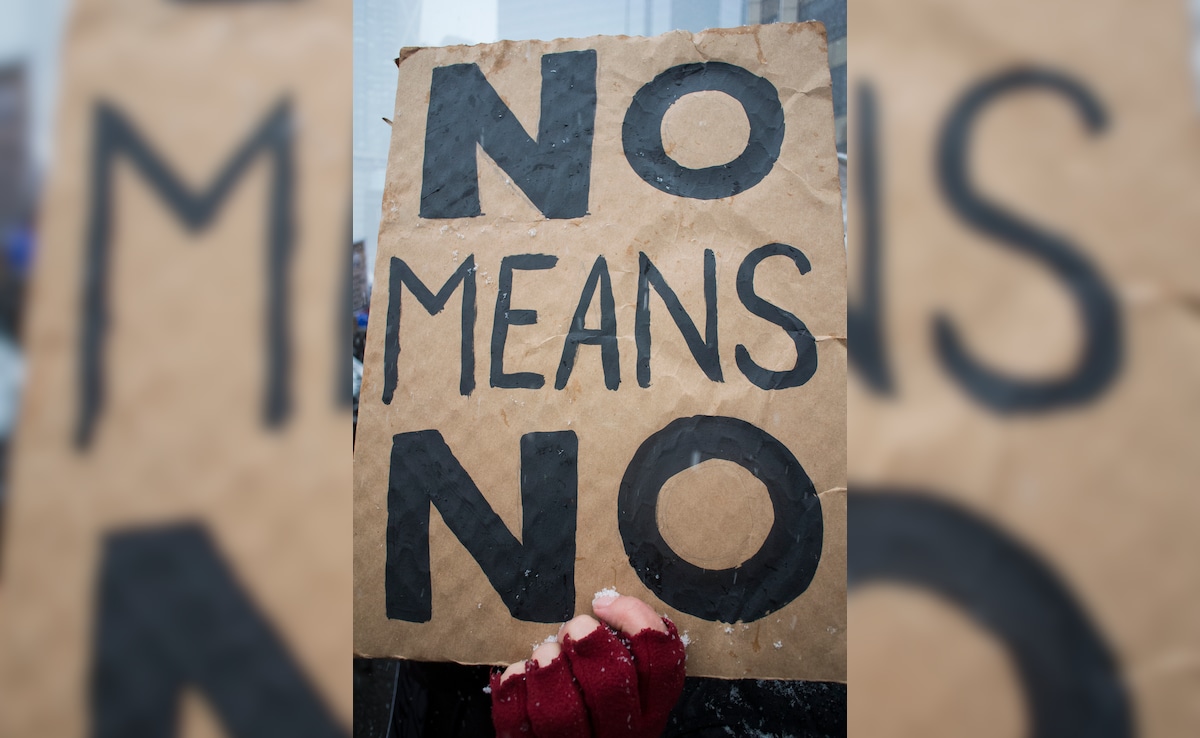New Delhi:
On August 9, 2024, a 31-year old trainee doctor on duty was brutally raped and murdered at Kolkata’s RG Kar Medical College and Hospital. Rape and murder, sadly, is not anything uncommon in our country. What stood out in the RG Kar case was the fact that the rape and murder took place at the doctor’s workplace.
So, women of all age groups, across West Bengal, hit the streets and participated in vigilante marches to seek justice for RG Kar.
The message was loud and clear, “Enough is enough.”
The following month, an influential Bengali director, who was accused of sexual harassment by several women over the years, was accused of the same yet again.
The stage was set. As woman after woman from Tollywood said #MeToo, the complaint didn’t go unnoticed this time. The director was barred from work for an indefinite period by the Directors’ Guild.
#MeToo is not new in the Bengali film industry. But 2024 made it heard louder. The City of Joy, finally, shrugged off its decades-old indifference to atrocities against women (physical, verbal, sexual) after the shocking incident of RG Kar.
Subsequently, the Bengali film industry (popularly known as Tollywood) also raised its voice – “We want justice”; “#MeToo”, justice from inappropriate behavior on film set, against lewd comments, against indecent gestures – all of which are easily bypassed in an industry where the concept of consent is always “taken for granted”.
Arindam Sil Accused Of #MeToo, FIR Registered
A popular television actress complained against director Arindam Sil of sexual misconduct on a film set. The complaint was registered with the Women’s Commission in September 2024. Following the complaint, the director was called in for questioning.
The actress alleged that the director “kissed” her on the “pretext” of explaining a scene during the shooting of the film, Only one expert is searching for minutes.
Arindam Sil
Arindam Sil, the director of films like Har Har Byomkesh, Eagoler Chokh, Dhananjay, initially claimed it was “unintentional (reported by Anandabazar Patrika).” The Women’s Commission made the director and the actress sit together for a transparent meeting.
Later, the director apologized to the actress on paper.
The actress also lodged an FIR against Arindam Sil at the Bishnupur Police Station (Diamond Harbour), as the shooting took place at a resort in that area.
Arindam Sil was suspended by the Directors’ Guild for an indefinite period of time following the charges.
Back in September last year, the accused director told Anandabazar Patrika“I apologized. Still I was suspended without any consultation. I will take help of legal counselling.”
Rupanjana Mitra – The Whistleblower
Five years ago, another popular television actress, Rupanjana Mitra, called out Arindam Sil in public for #MeToo. The incident occurred in 2017, and the actress talked about it in public in 2019.
When asked why she took two years to open up, Rupanjana Mitra told NDTV this week, “My child was 4 years old back then. He’s now 11. I was in a contract with the channel. Calling him out [Arindam Sil] would have repercussions on my personal and professional lives.”
When Rupanjana Mitra first accused the “influential” director of perpetrating indecent behaviour, she had to face the wrath of many insiders. But the actress believed in “karma” and the clock turned in her favor this time.
“This time, when another actress accused him, those who didn’t believe me earlier changed their perspectives. Swastika Mukherjee openly supported me. She even said, this “punishment” was due,” Mitra told. NDTV,
From the very beginning, Rupanjana Mitra built up a no-nonsense image of herself in the industry. After successfully working for many decades, if she had to face such harassment, does the Bengali industry provide any hope for newcomers?
“I was only 19 then. A woman, who used to work as a de facto between a producer and a casting director, called me to a transit house. Later, it was revealed the woman called many newcomers with an ‘ill-motive’ .
“I lodged a complaint against her at Garia Police Station. I also lodged a complaint with the Artists Forum back then. Rupa Ganguly was a part of the body then,” the actress recalled.
On another occasion, Rupanjana Mitra was dropped from a show when she called out a senior actor for his inappropriate behavior on set. She was no longer a newcomer back then.
Sudipta Chakraborty, who worked in the Arindam Sil-directed Dhananjaydidn’t encounter any unpleasant experience with the director.
“I haven’t faced anything unpleasant with him. That doesn’t mean other women, who have charged him, are telling lies.
“It’s a freelancing profession. Knowing the consequences – which might affect their work opportunities going ahead – women are opening up, I think those accounts need to be believed and the women should be morally supported,” the actress told. NDTV,
A #MeToo Accused In Bengali Theater
Not only in films, the Bengali theater space underwent a tumultuous time after actor and acting coach Daminee Benny Basu called out eminent theater personality, Suman Mukhopadhyay, for enabling a #MeToo-accused actor.
Mukhopadhyay was called out for casting a man accused of sexual assault, in his play tiner sword (written by Utpal Dutta) in April 2024.
The accused, Sudipto Chatterjee, was called out by several women at the peak of the #MeToo movement in 2018-2019.
Two police complaints were also filed against him – one at Phoolbagan Police Station and the other at Beliaghata Police station. The cases are still under trial.
Calling out Suman Mukhopadhyay’s silence, Daminee Basu wrote on social media in April, “Our hearts break now with you choosing radio silence over what matters the most, in terms of dehumanising the struggle of so many women, young girls and young boys fighting for their rights over their safety in the theater space.
“Is our safety, our harassment, or abuse not political,”bhodro” or “alarming” enough for any of you to talk about?” Basu wrote.
Mukhomukhi, the theater group that staged the play, eventually, put out a statement on behalf of all the cast and crew members of the production. Tiner Tolowar.
The statement read, “Sudipto Chatterjee is no longer part of the production. He has been asked to quit after the first show. It was our wrong decision to include him in the play. We immediately rectified our mistake and removed him from the cast. “
In an open letter published in a Bengali daily, Suman Mukhopadhyay wrote if he had hurt people’s sentiments, he’s regretful.
“By casting Sudipto, if I have hurt the sentiments of people, I am deeply regretful. People who are protesting have not acknowledged the fact that Sudipto is no longer a part of the play.
“They are saying I have quietly removed him from the play. I don’t understand why that is wrong. Do they want me to call Sudipto before a performance and announce that he has been dropped from the play?” Suman stated in the open letter.
“I have staged more than 25 plays. Made ten films, and I have never faced such a situation. Even after all this, if I end up endangering people from the industry, it is indeed very sad. I have no right to work in the theater anymore,” wrote Suman Mukhopadhyay.
When asked about the challenges Daminee Basu faced while building up a #MeToo movement against eminent personalities, the Chhotolok the actor told NDTV“The performance sector is built on contradictions. At its core is precarity. It demands perfection but refuses to recognize itself as an industry, leaving workers without protections.
“Abuse – whether emotional, financial, or physical – is widespread and often ignored. Those in power get away with it because silence and complicity have become survival tactics for many,” said Basu.
The actress continued, “At the same time, many who critique abuse also struggle to acknowledge their own role in perpetuating it in these harmful systems, making accountability even harder to achieve. Vulnerability is unevenly distributed, and those most precarious are forced into harmful alignments. .”
Ritabhari Chakraborty Met Chief Minister, Demanded Hema Committee-Like Body
Along the lines of the Hema Committee (an advisory committee formed by the Government of Kerala in July 2017, to investigate the issues related to sexual violence and gender inequality), Bengali actress Ritabhari Chakraborty urged women of the Bengali film industry to speak up against sexual harassment at workplace, in a Facebook post in September. She also tagged Chief Minister Mamata Banerjee in her post.
Following her Facebook post, the CM called Ritabhari to meet her at Nabanna. Ritabhari shared with Anandabazar Patrika what the committee would look like. The CM would form a committee with five ministers, who would decide on a set of guidelines after reading the Hema Committee report thoroughly. An investigative committee would also be formed.
A former chief justice would head the five-member committee. Police, psychologists, lawyers would also be a part of the committee. Ritabhari also requested Chief Minister Mamata Banerjee not to keep anyone from the industry in the committee. The actress told the media that the CM kept her request.
During her personal meet-up with Chief Minister Mamata Banerjee, Ritabhari Chakraborty also accused two “influential” producers of sexual harassment charges.
Hope In The Time Of #MeToo
Prominent Bengali female actors, writers, directors formed a forum titled Women’s Forum For Screen Workers to address the grievances of women facing violence at the workplace, following the Arindam Sil case.
Aparna Sen, Daminee Benny Basu and Sudipta Chakraborty are members of this forum. The forum is working towards building a safer future, and a hassle-free workplace for women in the Bengali industry.
After all, the show has to go on.





